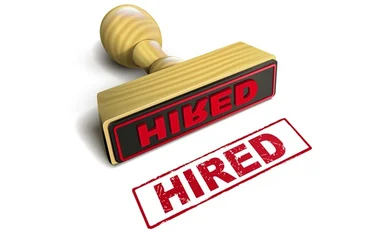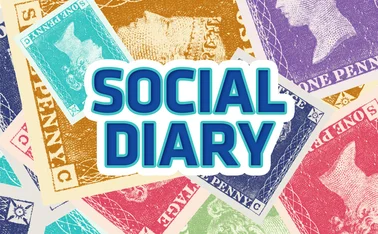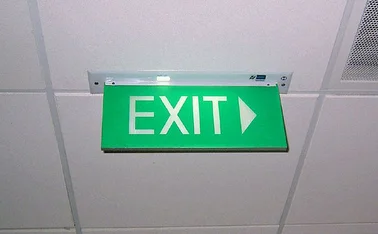
9/11 A personal reflection: Remembering the unforgettable

As the horror of 11 September 2001 unfolded, the insurance industry was not only reeling from the inevitable financial consequences. It was struggling to conceive a much more immense loss, a personal one
When the events of 11 September 2001 are reflected upon, all too often the focus is on the financial losses. Unprecedented they may have been but the overwhelming tragedy was the human loss, with many tenants of the World Trade Center being insurance firms. Of the 2976 killed that day, comprising citizens from more than 90 countries, many hundreds were colleagues and friends of those still working in the industry. Here Hamish Roberts, now CEO of Global Power Specialty at Aon, tells Lynn Rouse his story.
That morning, in London, it was just business as usual: we had accounts to place, deadlines to hit, orders to fill and endorsements to cover. I was with American clients from Tennessee Valley Authority, who were over to visit underwriters. At the time, I was head of Marsh’s global broking power team, reporting to Charles – Chuck – Mathers, who was based in the World Trade Center with the power and utility practice. Marsh is headquartered in mid-town on the Avenue of Americas but had moved into the WTC about two years before, taking eight or nine floors as an overspill office.
Everything stopped
The first we heard was when a phone call came through to say a Cessna had hit the North Tower, where our colleagues were based. That’s what a lot of London heard first — that a small plane had hit the towers. TVs went on and everything else just stopped.
Chuck was due to retire the next February. I’d spoken to him that morning, before the plane hit, as I did most days. He was a close, personal friend; I’d known and worked with him for years and we’d travelled the world together.
Having cancelled all meetings, my clients were deeply traumatised by watching events unfold. So many things were happening at once: there were rumours of other planes missing and fear at suggestions rogue planes might be heading for the UK. Many people just put their jackets on and went home.
We knew at Marsh that it was bad, we just knew. We had so many people down there.
I took my clients to a bar, bought them a beer. But after a while, when we’d seen the second tower hit, they said ‘Hamish just go home and be with your family. Don’t worry about us.’ They were incredibly shocked; their home country was being attacked. Everyone had realised by then this was a terrorist attack.
People were simply numb; thoughts were spinning. The RAF was flying over the City and it became a ghost town.
I remember my brother phoned that night to ask me how I was. I was in shock but he said words I’ll never forget: the world will never be the same. And he was absolutely right.
Next morning, when people started arriving at the office, no work was done. That was one of the most profound things — people just stopped work. They didn’t know what to say or what to do. Underwriters had their lids on their pens and wouldn’t sign endorsements. To this day I don’t know whether that was due to instruction, them not knowing whether they would have the capacity, or just shock. But the whole market simply stopped.
Then the phone calls started: has anyone see someone, does anyone know anyone missing? There were errant phone calls about people being identified, including Chuck, and I got very cross.
Taking control
People were trying to piece together who was accounted for, from London, which was wrong and dangerous. I remember saying: everyone just needs to back off and let Marsh New York take control, which it did, brilliantly.
I then spoke to Chuck’s deputy John McLean. He’s still a good friend and he had been at the dentist that morning. He knew what had happened because, as he came to the top of the subway stairs, down by WTC, the first plane hit. He just stood there, disbelieving. But he survived.
We lost all nine people from our team. The people who survived weren’t there; it’s as simple and awful as that.
I still talk to John regularly and I know that he still finds this time of year difficult. For a long time after the event you could hear him holding back the tears when on the phone. New York will never get used to this; it will never get over this.
Bit by bit we kept hearing new information. Someone would suddenly drop a name and you didn’t even know they’d been in New York; they were missing or gone.
The process of filling the register took weeks at Marsh because it was such a busy company, with so many different moving parts. Who knew whether someone had not told their assistant they were going down to a meeting in the WTC?
Gradually the calamity and scale of what had happened began to unfold. It was only perhaps six or seven weeks later when we heard that we had lost 295 people – such a staggering number.
Then came the anger. I remember getting incredibly angry about a couple of things. Someone phoned up one of our clients and said ‘we know you’ve lost some people from Marsh from your service team, but if there’s anything we can do to help...’. Our clients were the most angry because, although our relationship was obviously a business one, they were in shock too. We’re talking about human beings and I remember my outrage – thinking how could someone be so callous?
Looking back now, it was probably quite innocent but it was just the wrong time. And that call became the outlet for a lot of vitriol on my part.
The other thing that angered me related to Chuck’s funeral. Someone who had met him twice came up to me and said they wanted to go to the States to his funeral. And I remember feeling very cross about that. I wasn’t going to his funeral and yet someone who had met him twice was flying out? I didn’t obviously turn around and say, ‘you have no right’, it was none of my business to say so. Then I was angry with myself: what gave me the right to decide who could and couldn’t go? I chose not to because I felt a funeral was a very private thing. But on reflection, I think I was still in shock.
A little while later, a very gentle, very cultured man, Hamish Ritchie, who has long since retired from being chairman of Marsh Europe, organised a memorial service for the whole of Marsh UK at Southwark Cathedral. We had choral singers and the City of London Symphonia played. I remember Barber’s Adagio in Strings; one of the most beautiful pieces of music.
The entire market turned out. And the memos of sympathy were so heartfelt. Everyone was affected. The Southwark service was incredibly moving – and I think that was my first moment of grief. It was November.
In December, I went out to New Jersey to see Chuck’s wife and took two clients with me who were very close to him for years, Keith Kennedy of Florida Power & Light and Mike Williams of Texas Utilities. With John Mclean, we took his wife to dinner at Chuck’s favourite restaurant, drank his favourite wine. After dinner we laughed, she was crying as she laughed. But when we drove her home, she walked into an empty house. I’ll never forget that.
Only users who have a paid subscription or are part of a corporate subscription are able to print or copy content.
To access these options, along with all other subscription benefits, please contact info@postonline.co.uk or view our subscription options here: http://subscriptions.postonline.co.uk/subscribe
You are currently unable to print this content. Please contact info@postonline.co.uk to find out more.
You are currently unable to copy this content. Please contact info@postonline.co.uk to find out more.
Copyright Infopro Digital Limited. All rights reserved.
As outlined in our terms and conditions, https://www.infopro-digital.com/terms-and-conditions/subscriptions/ (point 2.4), printing is limited to a single copy.
If you would like to purchase additional rights please email info@postonline.co.uk
Copyright Infopro Digital Limited. All rights reserved.
You may share this content using our article tools. As outlined in our terms and conditions, https://www.infopro-digital.com/terms-and-conditions/subscriptions/ (clause 2.4), an Authorised User may only make one copy of the materials for their own personal use. You must also comply with the restrictions in clause 2.5.
If you would like to purchase additional rights please email info@postonline.co.uk







